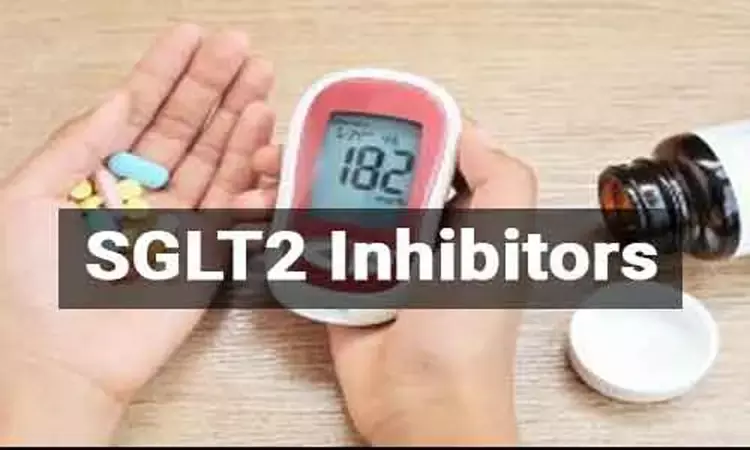- Home
- Medical news & Guidelines
- Anesthesiology
- Cardiology and CTVS
- Critical Care
- Dentistry
- Dermatology
- Diabetes and Endocrinology
- ENT
- Gastroenterology
- Medicine
- Nephrology
- Neurology
- Obstretics-Gynaecology
- Oncology
- Ophthalmology
- Orthopaedics
- Pediatrics-Neonatology
- Psychiatry
- Pulmonology
- Radiology
- Surgery
- Urology
- Laboratory Medicine
- Diet
- Nursing
- Paramedical
- Physiotherapy
- Health news
- Fact Check
- Bone Health Fact Check
- Brain Health Fact Check
- Cancer Related Fact Check
- Child Care Fact Check
- Dental and oral health fact check
- Diabetes and metabolic health fact check
- Diet and Nutrition Fact Check
- Eye and ENT Care Fact Check
- Fitness fact check
- Gut health fact check
- Heart health fact check
- Kidney health fact check
- Medical education fact check
- Men's health fact check
- Respiratory fact check
- Skin and hair care fact check
- Vaccine and Immunization fact check
- Women's health fact check
- AYUSH
- State News
- Andaman and Nicobar Islands
- Andhra Pradesh
- Arunachal Pradesh
- Assam
- Bihar
- Chandigarh
- Chattisgarh
- Dadra and Nagar Haveli
- Daman and Diu
- Delhi
- Goa
- Gujarat
- Haryana
- Himachal Pradesh
- Jammu & Kashmir
- Jharkhand
- Karnataka
- Kerala
- Ladakh
- Lakshadweep
- Madhya Pradesh
- Maharashtra
- Manipur
- Meghalaya
- Mizoram
- Nagaland
- Odisha
- Puducherry
- Punjab
- Rajasthan
- Sikkim
- Tamil Nadu
- Telangana
- Tripura
- Uttar Pradesh
- Uttrakhand
- West Bengal
- Medical Education
- Industry
Cardiac, metabolic and renal effects of SGLT2 inhibitors: Position Statement

Delhi: The European Society of Cardiology has released position statements on the cardiac, metabolic, and renal effects of sodium-glucose co-transporter 2 (SGLT2) inhibitors.
The document, published in the European Journal of Heart Failure, summarizes reported results from these 10 large clinical outcome trials considering separately each of the different types of cardiorenal benefit, summarizes key molecular and pathophysiological mechanisms, and provides a synopsis of metabolic effects and safety.
The authors also described ongoing placebo-controlled trials among individuals with heart failure with preserved ejection fraction and among individuals with chronic kidney disease.
In 2015, the first large-scale placebo-controlled trial designed to assess cardiovascular safety of glucose-lowering with sodium-glucose co-transporter 2 (SGLT2) inhibition in type 2 diabetes mellitus raised hypotheses that the class could favorably modify not only the risk of atherosclerotic cardiovascular disease, but also hospitalization for heart failure, and the development or worsening of nephropathy. By the start of 2021, results from 10 large SGLT2 inhibitor placebo-controlled clinical outcome trials randomizing ∼71 000 individuals have confirmed that SGLT2 inhibitors can provide clinical benefits for each of these types of outcomes in a range of different populations.
The cardiovascular and renal benefits of SGLT2 inhibitors appear to be larger than their comparatively modest effect on glycaemic control or glycosuria alone would predict, with three trials recently reporting that clinical benefits extend to individuals without diabetes mellitus who are at risk due to established heart failure, or albuminuric chronic kidney disease.
Following are the key takeaways from the document:
Heart failure population
- In individuals with heart failure with reduced ejection fraction (with or without type 2 DM), risk of CV death or hospitalization for heart failure is reduced by dapagliflozin or empagliflozin.
- In individuals with type 2 DM recently hospitalized for heart failure, the risk of CV death or hospitalization for heart failure is reduced by sotagliflozin.
Type 2 diabetes at high/very high CV risk populations
· In individuals with type 2 DM at high/very high risk of CV disease, risk of major atherosclerotic CV events is reduced by empagliflozin and canagliflozin, and risk of cardiovascular death and all-cause mortality is reduced by empagliflozin.
- In individuals with type 2 DM at high/very high risk of CV disease, risk of CV death or hospitalization for heart failure is reduced by empagliflozin, canagliflozin, or dapagliflozin, and risk of hospitalization for heart failure is reduced by empagliflozin, canagliflozin, dapagliflozin or ertugliflozin.
- In individuals with type 2 DM, risk of kidney disease progression (i.e. clinically significant sustained reductions in kidney function) is reduced by empagliflozin, canagliflozin or dapagliflozin.
CKD populations
- In individuals with type 2 DM and proteinuric diabetic kidney disease, progression to end-stage kidney disease is reduced by canagliflozin or dapaglifloziN.
- In individuals with proteinuric CKD, with or without type 2 DM, the risk of kidney disease progression is reduced by dapagliflozin.
- In individuals with type 2 DM and CKD, the risk of CV death or hospitalization for heart failure is reduced by canagliflozin, dapagliflozin or sotagliflozin
The position paper titled, "Cardiac, renal, and metabolic effects of sodium-glucose co-transporter 2 inhibitors: a position paper from the European Society of Cardiology ad-hoc task force on sodium-glucose co-transporter 2 inhibitors," is published in the European Journal of Heart Failure.
DOI: https://onlinelibrary.wiley.com/doi/10.1002/ejhf.2286
Dr Kamal Kant Kohli-MBBS, DTCD- a chest specialist with more than 30 years of practice and a flair for writing clinical articles, Dr Kamal Kant Kohli joined Medical Dialogues as a Chief Editor of Medical News. Besides writing articles, as an editor, he proofreads and verifies all the medical content published on Medical Dialogues including those coming from journals, studies,medical conferences,guidelines etc. Email: drkohli@medicaldialogues.in. Contact no. 011-43720751


